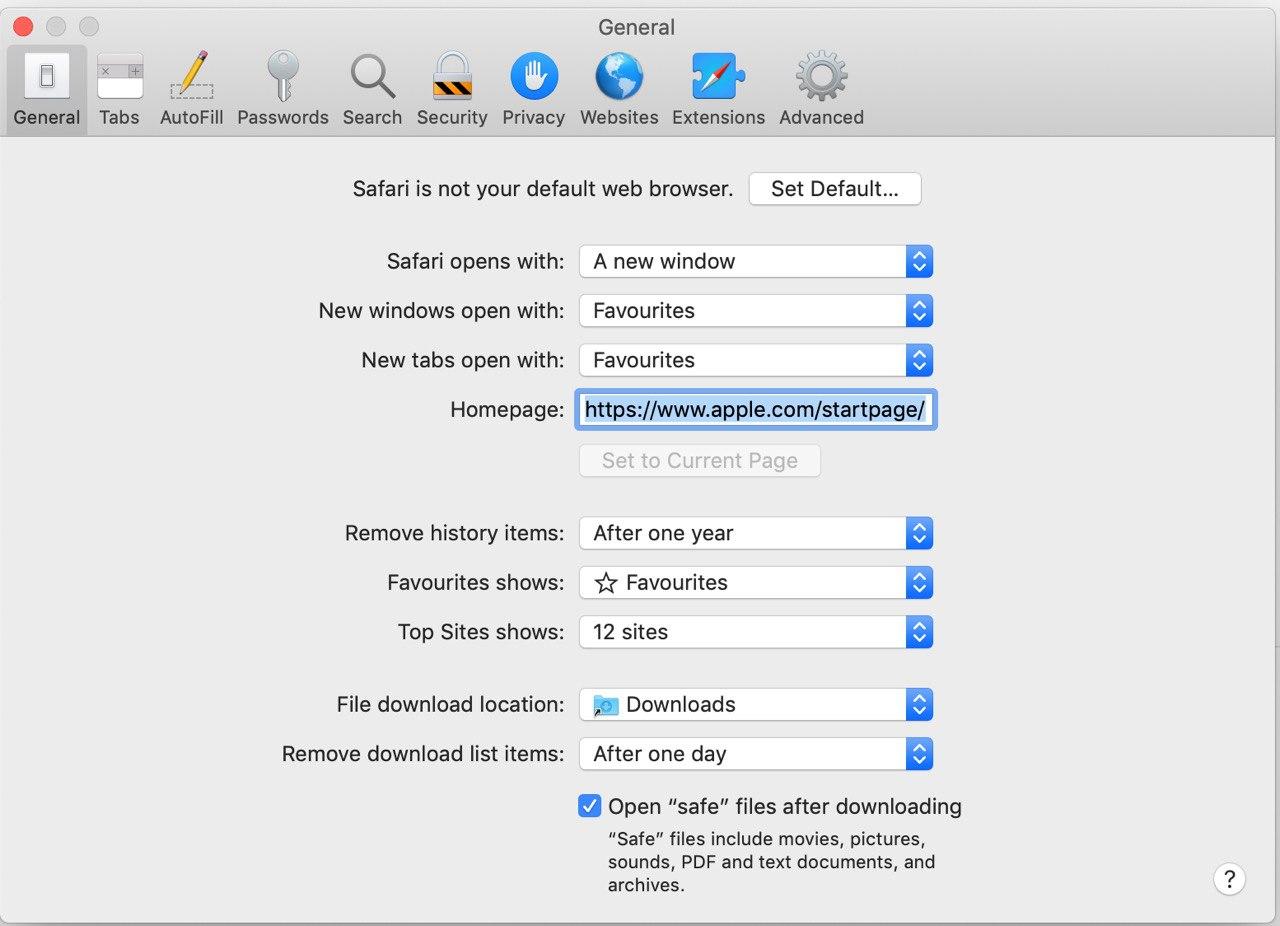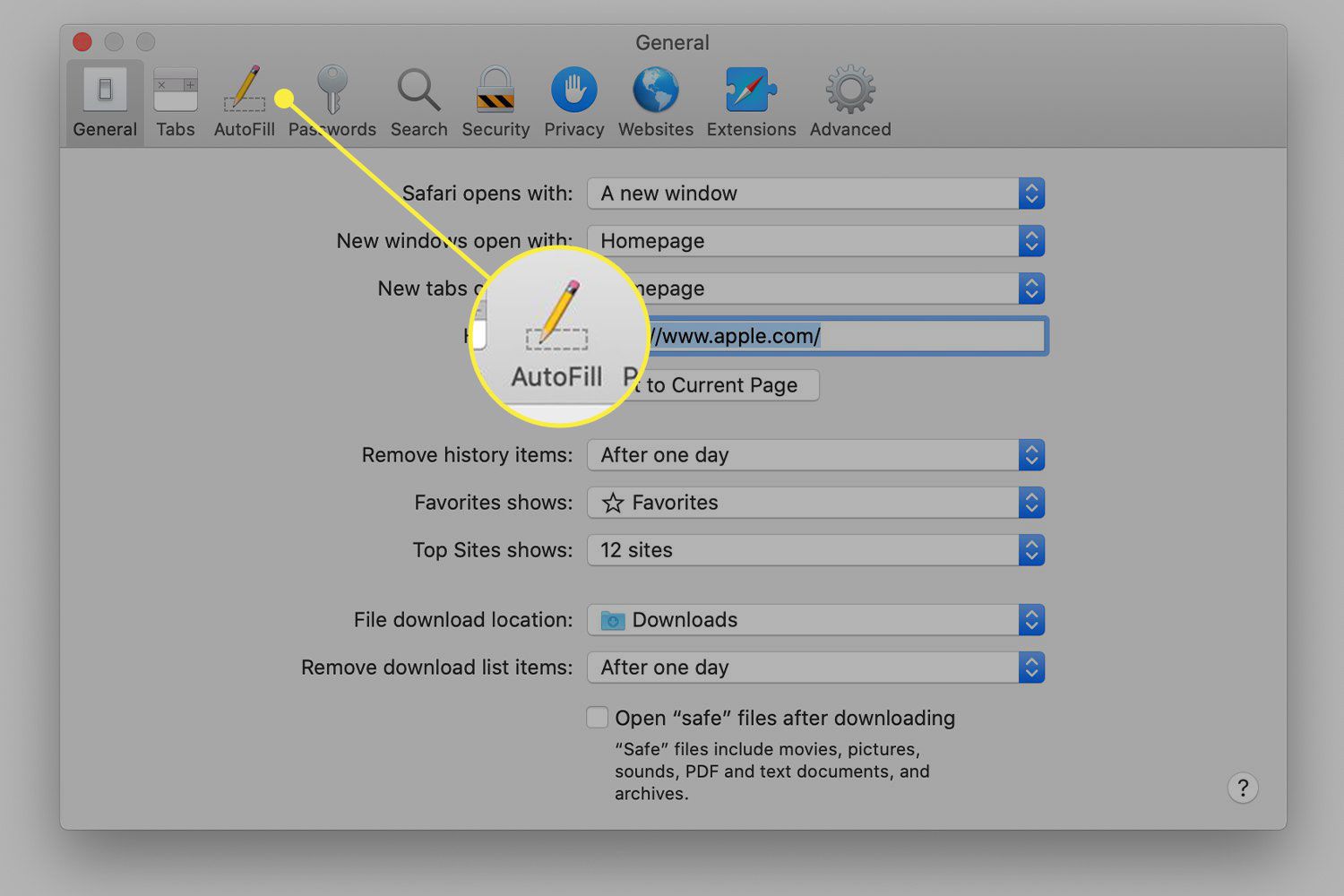Introduction
Safari, Apple's web browser, is a powerful tool that provides users with a seamless and secure web browsing experience. It is designed to offer a blend of cutting-edge technology, user-friendly features, and robust security measures. Understanding the foundational elements of Safari can provide valuable insights into its capabilities and performance.
In this article, we will delve into the core components that form the bedrock of Safari's functionality. From the WebKit rendering engine to the JavaScript engine, Safari extensions, security and privacy measures, as well as performance and optimization techniques, we will explore the intricate details that make Safari a standout browser in the digital landscape.
By unraveling the inner workings of Safari, users can gain a deeper appreciation for the thoughtfully crafted features and the meticulous attention to detail that underpin its design. Whether you are a casual user or a tech enthusiast, understanding the technology behind Safari can enhance your browsing experience and empower you to make informed decisions about your online activities.
Let's embark on a journey to uncover the technological marvels that power Safari, and gain a newfound appreciation for the browser that seamlessly connects us to the boundless expanse of the World Wide Web.
WebKit
At the heart of Safari lies WebKit, a robust open-source web rendering engine that plays a pivotal role in shaping the browsing experience. Developed by Apple, WebKit serves as the foundation for not only Safari but also other web browsers, including Google Chrome and various mobile browsers. Its significance stems from its ability to interpret and display web content with remarkable speed, precision, and adherence to web standards.
One of the defining features of WebKit is its rendering capabilities, which enable the translation of HTML, CSS, and JavaScript into visually appealing and interactive web pages. This process involves parsing the underlying code and transforming it into the graphical interface that users interact with. By leveraging advanced rendering techniques, WebKit ensures that web content is presented accurately and consistently across different devices and screen sizes.
Furthermore, WebKit's support for modern web technologies empowers developers to create dynamic and immersive web experiences. It embraces the latest standards and specifications, enabling the seamless integration of multimedia elements, animations, and responsive design principles. This not only enriches the visual appeal of web content but also contributes to a more engaging and user-friendly browsing environment.
In addition to its rendering prowess, WebKit is renowned for its emphasis on performance optimization. Through efficient resource management and rendering optimizations, WebKit strives to deliver swift page loading times and smooth navigation. This is particularly crucial in today's fast-paced digital landscape, where users expect instant access to information and seamless interactions with web applications.
Moreover, WebKit's commitment to security and privacy is evident in its proactive approach to mitigating potential vulnerabilities and safeguarding user data. By adhering to stringent security protocols and continuously addressing emerging threats, WebKit contributes to the overall resilience of Safari as a secure browsing platform.
In essence, WebKit stands as a cornerstone of Safari's success, embodying a harmonious blend of cutting-edge technology, performance optimization, and unwavering commitment to web standards and security. Its influence extends beyond the realms of web browsing, shaping the broader landscape of digital experiences and reinforcing Safari's position as a leading browser in the ever-evolving digital ecosystem.
JavaScript Engine
The JavaScript engine is a pivotal component within Safari, responsible for executing JavaScript code and powering the dynamic and interactive elements of web pages. In the context of Safari, the JavaScript engine plays a crucial role in enabling seamless user interactions, facilitating the manipulation of web content, and driving the functionality of web applications.
Safari's JavaScript engine is designed to deliver exceptional performance, leveraging advanced optimization techniques to ensure swift execution of JavaScript code. This is particularly significant in the realm of web development, where the responsiveness and fluidity of user interactions heavily rely on the efficiency of JavaScript execution. By prioritizing speed and responsiveness, Safari's JavaScript engine contributes to a smooth and immersive browsing experience, enhancing user satisfaction and engagement.
Furthermore, Safari's JavaScript engine embraces the latest advancements in JavaScript language features and standards, empowering developers to leverage modern programming constructs and techniques. This compatibility with contemporary JavaScript specifications enables the seamless integration of cutting-edge functionalities, fostering innovation and creativity in web development.
In addition to performance and compatibility, the JavaScript engine in Safari is engineered with a strong emphasis on security and privacy. It incorporates robust measures to mitigate potential security vulnerabilities associated with JavaScript execution, thereby fortifying Safari's resilience against malicious exploits and unauthorized access to user data. By prioritizing security, the JavaScript engine contributes to the overall integrity of Safari as a secure and trustworthy browsing platform.
Moreover, Safari's JavaScript engine is optimized to harmonize with the broader ecosystem of web technologies, enabling seamless interoperability with other components such as WebKit and rendering engines. This cohesive integration facilitates the cohesive execution of JavaScript-driven functionalities within the broader framework of web content rendering, ensuring a cohesive and harmonious browsing experience for users.
In essence, the JavaScript engine in Safari stands as a testament to Apple's commitment to delivering a robust, secure, and high-performance web browsing environment. By empowering developers, prioritizing user experience, and upholding stringent security standards, the JavaScript engine plays a pivotal role in shaping the dynamic and interactive landscape of the web within Safari.
Safari Extensions
Safari extensions serve as invaluable tools that augment the functionality of the browser, empowering users with a diverse array of features and customization options. These extensions, also known as plugins or add-ons, are designed to extend the capabilities of Safari, catering to a wide spectrum of user preferences and requirements.
One of the defining attributes of Safari extensions is their ability to enhance productivity and streamline workflows. From ad blockers and password managers to language translators and productivity tools, the Safari extension ecosystem encompasses a rich tapestry of offerings that cater to diverse user needs. These extensions not only enrich the browsing experience but also contribute to a more personalized and efficient interaction with web content.
Furthermore, Safari extensions play a pivotal role in fostering creativity and innovation within the browser environment. Developers have the opportunity to craft bespoke extensions that introduce novel functionalities, address specific pain points, and introduce innovative features that transcend the conventional boundaries of web browsing. This spirit of innovation fuels the continuous evolution of Safari as a dynamic and adaptive platform that resonates with the diverse needs and preferences of its user base.
Moreover, Safari extensions are instrumental in promoting accessibility and inclusivity within the browsing experience. By offering extensions that cater to diverse user requirements, such as screen readers, color contrast enhancers, and text-to-speech tools, Safari endeavors to create an inclusive environment where users of varying abilities can engage with web content seamlessly. This commitment to accessibility underscores Safari's dedication to fostering an inclusive and equitable digital landscape.
In addition to their functional and creative contributions, Safari extensions are underpinned by a robust framework that prioritizes security and privacy. Apple's stringent review process for Safari extensions ensures that they adhere to strict guidelines, safeguard user privacy, and mitigate potential security risks. This commitment to maintaining a secure and trustworthy extension ecosystem reinforces user confidence and underscores Safari's unwavering dedication to protecting user data and privacy.
In essence, Safari extensions embody a harmonious blend of functionality, creativity, accessibility, and security, enriching the browsing experience and empowering users to tailor Safari to their unique preferences and requirements. As an integral facet of Safari's ecosystem, extensions play a pivotal role in shaping a dynamic and personalized browsing environment that resonates with the diverse needs and aspirations of users.
Security and Privacy
Security and privacy stand as paramount pillars within Safari's framework, reflecting Apple's unwavering commitment to safeguarding user data and fortifying the browsing environment against potential threats. The browser's robust security measures and privacy-centric design underscore its dedication to fostering a secure and trustworthy digital experience for users.
Safari's security architecture encompasses a multi-faceted approach, integrating advanced technologies and proactive strategies to mitigate potential vulnerabilities and thwart malicious exploits. The browser's robust anti-tracking features, for instance, empower users to navigate the web without being incessantly monitored by invasive tracking mechanisms, thereby preserving their privacy and autonomy. This proactive stance against tracking aligns with Apple's advocacy for user privacy and data protection, reinforcing Safari's position as a privacy-forward browser.
Furthermore, Safari's intelligent tracking prevention capabilities leverage machine learning algorithms to identify and neutralize cross-site tracking techniques, thereby curtailing the unauthorized collection of user data by third-party entities. This proactive stance against tracking aligns with Apple's advocacy for user privacy and data protection, reinforcing Safari's position as a privacy-forward browser.
In addition to its anti-tracking prowess, Safari integrates robust measures to safeguard user credentials and sensitive information. The browser's strong password management features facilitate the secure storage and auto-generation of complex passwords, reducing the susceptibility to unauthorized access and enhancing overall account security. Moreover, Safari's seamless integration with the iCloud Keychain further fortifies the protection of user credentials, ensuring that sensitive data remains encrypted and accessible only to authorized users.
Safari's commitment to security extends to its proactive approach in addressing potential security vulnerabilities and swiftly deploying patches and updates to mitigate emerging threats. By adhering to stringent security protocols and collaborating with the broader cybersecurity community, Safari endeavors to fortify its defenses against evolving cyber threats, thereby fostering a resilient and secure browsing environment for users.
In essence, Safari's unwavering focus on security and privacy underscores its dedication to empowering users with a browsing experience that prioritizes data protection, privacy preservation, and proactive threat mitigation. By integrating advanced security measures, anti-tracking capabilities, and robust privacy features, Safari stands as a beacon of trustworthiness and resilience in the digital landscape, embodying Apple's steadfast commitment to safeguarding user interests and fostering a secure and privacy-centric browsing environment.
Performance and Optimization
Performance and optimization are integral facets of Safari's DNA, underpinning its commitment to delivering a swift, responsive, and seamless browsing experience for users. The browser's relentless pursuit of performance excellence is manifested through a multifaceted approach that encompasses rendering efficiency, resource management, and adaptive technologies.
Safari's rendering engine, powered by WebKit, is optimized to interpret and display web content with remarkable speed and precision. By leveraging advanced rendering techniques and adherence to web standards, Safari ensures that web pages load swiftly and are presented accurately across diverse devices and screen sizes. This emphasis on rendering efficiency contributes to a visually appealing and consistent browsing experience, enhancing user satisfaction and engagement.
Furthermore, Safari's resource management capabilities play a pivotal role in optimizing performance. The browser's efficient utilization of system resources, such as memory and processing power, contributes to swift page loading times, seamless navigation, and responsive interactions with web content. This resource-conscious approach not only enhances the browsing experience but also minimizes the strain on device resources, fostering a harmonious coexistence with other applications and processes.
In addition to rendering efficiency and resource management, Safari integrates adaptive technologies that dynamically optimize performance based on user interactions and environmental factors. The browser's intelligent caching mechanisms, preloading strategies, and predictive loading algorithms anticipate user behavior and proactively optimize the delivery of web content. This adaptive approach ensures that users experience minimal latency, swift content retrieval, and seamless transitions between web pages, thereby enhancing the overall fluidity and responsiveness of the browsing experience.
Moreover, Safari's commitment to performance optimization extends to its support for modern web technologies and standards. By embracing the latest advancements in web development, such as responsive design principles, multimedia integration, and progressive web app functionalities, Safari empowers developers to create immersive and high-performance web experiences. This compatibility with contemporary web technologies ensures that users can seamlessly engage with cutting-edge web content while benefiting from optimized performance and responsiveness.
In essence, Safari's dedication to performance and optimization underscores its unwavering commitment to delivering a browsing experience that is characterized by speed, efficiency, and seamless interactions. By prioritizing rendering efficiency, resource management, adaptive technologies, and support for modern web standards, Safari stands as a paragon of performance excellence, enriching the digital landscape with a browser that resonates with the dynamic needs and expectations of modern users.

























